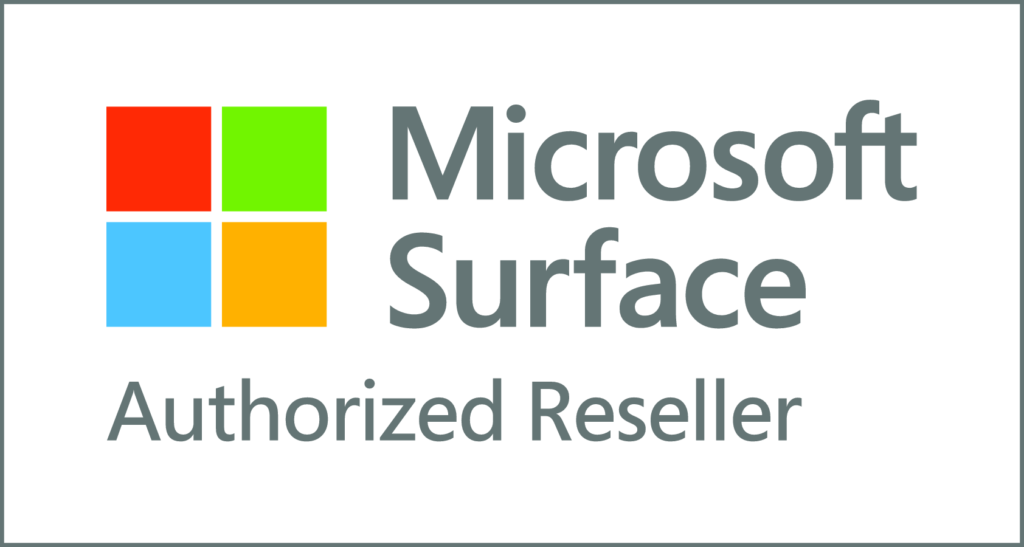Cloud computing is one of the most significant technological advances in recent history. By moving your company’s data and applications to the Cloud, you can enjoy a wide range of benefits, including improved efficiency, cost savings, and increased security. In this blog post, we will discuss the top 9 benefits of managed cloud services and examples of cloud solutions that your business could benefit from. Read on to learn more!
Cloud Computing as a Managed Service
Managed cloud services is a term used to describe outsourcing IT functions to a third-party provider. By entrusting your company’s IT needs to a managed service provider (MSP), you can save time and money while improving your business’s security posture.
There are many benefits of managed IT cloud services. By outsourcing your IT needs to a third-party provider, you can save time and money while improving your business’s security posture.
Here are the top 9 benefits of using a managed service provider for your IT needs:
1. Improved Efficiency
When you outsource your IT functions to a managed service provider, you can free up your internal resources to focus on more strategic initiatives. MSPs are experts in their field and can provide a high level of support, freeing up your time to focus on other areas of the business.
2. Increased Security
One of the main benefits of managed IT cloud services is increased security. By entrusting your company’s data and applications to a third-party provider, you can rest assured that they are in good hands. MSPs have the expertise and resources to implement the latest security measures, keeping your data safe and secure.
3. Cost Savings
Managed IT cloud services can save you money in the long run. By outsourcing your IT needs, you can avoid the high costs of hiring and training in-house staff. MSPs also have economies of scale, which means they can offer discounts on products and services.
4. Improved Compliance
Another benefit of managed IT cloud services is improved compliance. MSPs can help you meet industry regulations and standards, such as HIPAA and PCI.
5. Increased Flexibility
Managed IT cloud services offer increased flexibility. MSPs can scale their services to meet your changing needs, providing the support you need when you need it.
6. Improved Disaster Recovery
One of the main benefits of managed IT cloud services is improved disaster recovery. MSPs can provide you with the resources and expertise to recover from a disaster, minimizing downtime and keeping your business up and running.
7. Reduced Hardware Expenses
Managed IT cloud services can also help you reduce your hardware costs. By moving your data and applications to the Cloud, you can avoid the high costs of purchasing and maintaining on-premise hardware.
8. Reduced Software Management Expense
In addition to reducing your hardware costs, managed IT cloud services can also help you reduce your software management costs. By outsourcing your IT needs, you can avoid the high costs of purchasing and maintaining software licenses and updates on multiple computers.
9. Scalability
As your business grows, managed IT cloud services can help you scale your IT infrastructure to meet your increasing needs. MSPs have the expertise and resources to quickly add new users and applications, keeping your business up and running as you grow.
Examples of Managed Cloud Services
Business Email as a Managed Service
Business email is a cloud-based email service that provides you with the same features and functionality as on-premise email but without the need to maintain your own email server. Business email is a cost-effective way to get all the benefits of an enterprise-grade email system without the high costs. Whether you’re using Office 365 or Google Suite, your MSP can provide feature-rich performance, security, and dependability without the need for on-staff experts.
Cloud Servers
Microsoft Azure is a growing collection of interconnected cloud services that software developers and IT professionals may use to create, deploy, and manage applications across multiple data centers around the world. With cloud server solutions like Azure, you have the flexibility to develop and deploy whatever you want anywhere in the world using whatever tools, apps, and frameworks you choose.
Cloud Back-up & DRaaS
Cloud-to-Cloud Backup, or C2C Transfer, is the process of moving data from one cloud backup service to another. You can quickly restore your data if it is lost or destroyed due to human error in SaaS solutions like Salesforce, Google Suite, or Microsoft Office 365. MSPs in the event of an outage or disaster. Disaster Recovery as a Service (DRaaS) is a managed service that provides data recovery in the event of a serious data loss event.
Cloud Storage
Cloud storage is perhaps the most commonly used cloud service. Businesses are generating, accumulating, and storing more data than ever before. IDC predicts that by 2025 global data will grow to 163 zettabytes (ZB). That’s a lot of data! And it’s not just coming from traditional sources like files, email, and applications. It’s also coming from the Internet of Things (IoT), adding a new layer of data to the equation.
DDoS Protection
A distributed denial of service (DDoS) attack is an attempt to make an online service unavailable by overwhelming it with traffic from multiple sources. DDoS attacks are a serious threat to businesses of all sizes and can cause significant damage, including lost revenue, damaged reputations, and stolen data.
IaaS
Infrastructure as a Service (IaaS) is a cloud computing model in which an organization contracts to use infrastructure owned by a third party. With IaaS, you can outsource the management and operation of your physical or virtual servers, storage, and networking hardware.
PaaS
Platform as a Service (PaaS) is a cloud computing model in which an organization contracts to use a platform hosted by a third-party provider. With PaaS, you can develop, deploy, and manage applications without the need to maintain or manage the underlying infrastructure.
SaaS
Software as a Service (SaaS) is a cloud computing model in which an organization contracts to use software hosted by a third-party provider. With SaaS, you can access and utilize software from any computer or device with an internet connection.
Cloud Applications
An MSP can manage on-premise and off-premises application environments, public clouds, and business-grade solutions. They use adaptable processes and techniques, emphasizing compliance, cost management, and worldwide IT demands.
Cloud File Sync
Give your staff more freedom with a solution like OneDrive File Sync so they can work from where you choose. OneDrive allows people to collaborate without borders. Make critical changes on the fly using your mobile or desktop device. Your MSP will help you pick the ideal secure file sync solution for your company’s needs.
Cloud Phone Systems
Cloud-based phone systems allow small enterprises to manage communications services more inexpensively, simply, and adaptable. As your company expands and develops, the ability to rapidly scale up or down becomes crucial. An MSP specializing in cloud phone solutions will simplify setting up and running a cloud-based phone system.
Hybrid Cloud Solutions
An on-premises/off-premises or hybrid Cloud is a computing environment that mixes on-premise, private, and third-party public cloud services with connections between platforms. An example is an organization that keeps an internal server for a mission-critical or proprietary application but uses Office 365 for email. Hybrid configurations are more complex but can offer businesses more flexibility in managing critical data and shared applications.
Colocation Solutions
A colocation solution may be for you if you don’t want mission-critical equipment onsite. Colocation is the housing of computer systems and telecommunications equipment in a third-party data center. In a colocation arrangement, the service provider owns, operates, and maintains the facility, while the customer owns, operates, and maintains the equipment.
Conclusion
In this blog post, we have discussed the top nine benefits of managed cloud services. By outsourcing your IT needs to a third-party provider, you can enjoy improved efficiency, increased security, cost savings, etc.
The benefits of using cloud services are many and varied. In addition to cost savings, businesses can enjoy increased efficiency, scalability, and flexibility. Total Networx is your best choice for cloud services in the Twin Cities area. We offer a full range of cloud-based applications, file sync, sharing solutions, phone systems, and colocation services.
Best Practice Cloud IT Strategies
We assist you in reducing expenses and complexity by determining and clarifying your cloud strategy, as well as positioning your data in the most appropriate location to manage your entire technology infrastructure.
Private, Hybrid, or Public Cloud?
The Cloud has never been more popular than it is right now, and that trend is only growing. There are many different things known as the Cloud: hosted solutions, private Cloud, public Cloud, and hybrid Cloud. Total Networx enables you to navigate and make the most of Cloud IT Services and Computer Technology.
Clear. CloudWorx™ Solutions.
CloudWorx™ is a comprehensive IT cloud computing solution. Our clients collaborate with us to discover the most efficient, dependable, and cost-effective solutions possible. We are here to assist regardless of whether you wish to go full Cloud or combine on-premises and cloud services.
For more information on our CloudWorx™ managed cloud services, contact our Total Networx Solutions Specialists team today!
Give us a call today at 952-400-6500 or email us at info@totalnetworx.com.
FAQs
Q: What is the main concept behind managed cloud services?
A: Managed cloud services involve outsourcing IT functions to a third-party provider, allowing businesses to save time and money while enhancing security.
Q: What are the key benefits of using a managed service provider for IT needs?
- A: The top benefits include improved efficiency, increased security, cost savings, compliance adherence, flexibility, disaster recovery support, reduced hardware and software expenses, and scalability.
Q: How does managed IT cloud services contribute to improved security?
A: Managed service providers have the expertise and resources to implement the latest security measures, ensuring the safety and security of company data and applications.
Q: Can managed IT cloud services help with regulatory compliance?
- A: Yes, MSPs assist in meeting industry regulations and standards, such as HIPAA and PCI, contributing to improved compliance.
Q: What are some examples of cloud solutions that businesses can benefit from?
- A: Examples include Business Email, Cloud Servers (e.g., Microsoft Azure), Cloud Backup & DRaaS, Cloud Storage, DDoS Protection, IaaS, PaaS, SaaS, Cloud Applications, Cloud File Sync, Cloud Phone Systems, Hybrid Cloud Solutions, and Colocation Solutions.
Q: What are Managed Cloud Services?
A: Managed Cloud Services refer to outsourcing cloud infrastructure management and maintenance to a third-party provider. These providers take care of tasks such as server monitoring, security, data backups, software updates, and technical support, allowing businesses to focus on their core operations.
Q: How can Managed Cloud Services benefit my business?
A: Managed Cloud Services offer numerous benefits to businesses, including:
- Cost Savings: By leveraging the expertise and resources of a managed service provider, businesses can reduce costs associated with maintaining an in-house IT team and infrastructure.
- Scalability and Flexibility: Managed cloud services allow businesses to quickly scale their resources up or down based on their changing needs, ensuring optimal performance and cost-efficiency.
- Enhanced Security: Experienced managed service providers implement robust security measures and constantly monitor for potential threats, ensuring the protection of sensitive data and minimizing the risk of breaches.
- Improved Reliability: With proactive monitoring and 24/7 support, managed cloud services providers ensure high availability and minimize downtime, improving reliability and productivity.
- Access to Expert Support: Managed cloud services provide access to a team of skilled professionals who can offer technical assistance, troubleshooting, and strategic guidance.
Q: Are Managed Cloud Services suitable for small businesses?
A: Absolutely! Managed cloud services are an excellent fit for businesses of all sizes, including small businesses. They can be particularly beneficial for small businesses that may need more resources or expertise to handle complex IT infrastructure and security on their own. Managed service providers offer affordable plans tailored to the specific needs of small businesses, enabling them to leverage enterprise-grade technology and support.
Q: Can I retain control over my data and applications with managed cloud services?
A: You retain complete control over your data and applications with managed cloud services. The service provider manages and maintains the underlying infrastructure and ensures its availability, security, and performance. However, you have complete control over your data, applications, and configurations. The managed service provider works closely with you to align their services with your business requirements and security policies.
Q: How do I choose the right managed cloud services provider?
A: Choosing the right managed cloud services provider is crucial for the success of your business. Consider the following factors when making a decision:
- Expertise and Experience: Look for a provider with a proven track record in managing cloud environments and a deep understanding of your industry.
- Security Measures: Ensure the provider has robust security measures in place, including data encryption, access controls, and compliance with relevant regulations.
- Scalability and Flexibility: Choose a provider that can accommodate your business’s growth and changing needs, offering the ability to scale resources as required.
- SLAs and Support: Evaluate the provider’s service level agreements (SLAs), support options, and response times to ensure they align with your business requirements.
- Cost-Effectiveness: Assess the provider’s pricing structure, comparing it with the value and level of service they offer to ensure it fits your budget and provides a good return on investment.



